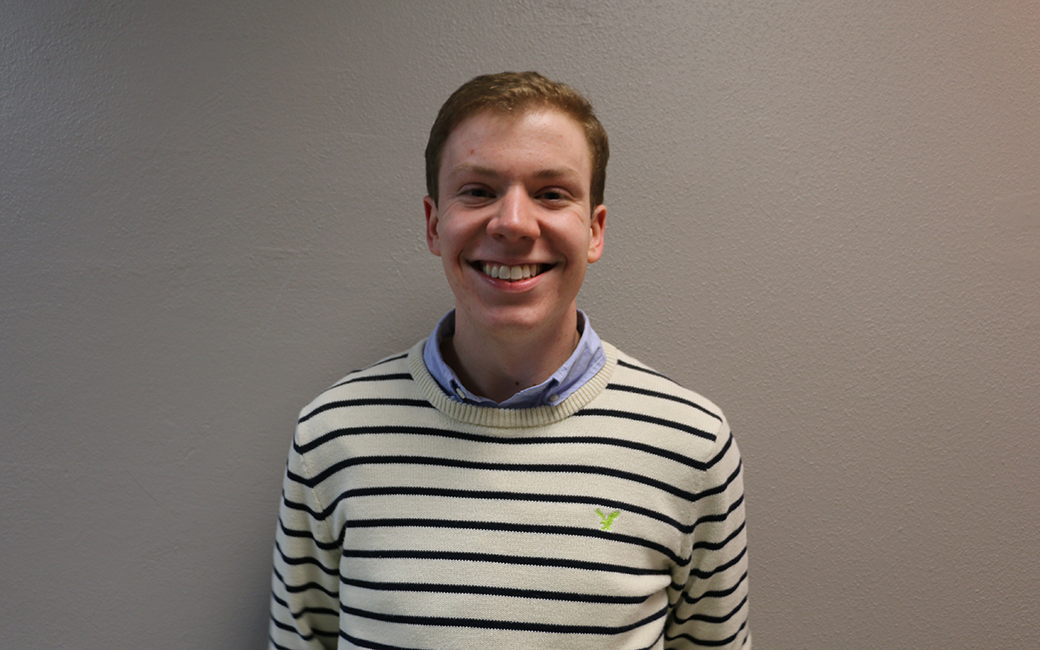
Tapingo: Convenience vs. fairness
It comes out of nowhere. Three beeps, one right after the other.
Loud. Shocking. It’s like an air-raid.
It’s Tapingo.
Tapingo is the newest addition to campus life, which allows students to order food and drinks from various business at the Muenster University Center by simply using an app on their smartphones.
With the app, students and faculty alike are able to place an order, pay for their item(s) and have whatever they’ve ordered waiting for them when they come through the MUC.
No lines, no waiting, no unnecessary human interaction when ordering.
It’s genius, really.
We live in a world where convenience is key. We have autocorrect because spelling out words on our own is too much. We say “brb” instead of “be right back” because it’s just so much faster to throw three letters down than it is to type out all three of those words – so why should getting coffee or a pizza bagel be any different?
From the standpoint of a student, I absolutely understand Tapingo’s appeal. If I’m running late to class and need coffee, simply hopping onto the app and ordering an iced vanilla hazelnut latte with no whipped cream from Einstein’s is so much quicker than waiting in line to get a caffeine fix.
Not having to wait in line is one of the biggest blessings since Jesus cured that guy of his blindness. Tapingo may very well be the best thing since sliced bread. In a world of 140 characters or less, cutting out as much of the unnecessary as possible is innovation that everyone can get behind.
That being said, I work at Einstein’s. I hear those three beeps and a chill runs down my spine.
When we’re in the middle of a rush, getting an order from Tapingo is an inconvenience to everyone that’s waiting in line.
When we receive an order from Tapingo, it goes straight onto the pile as soon as the receipt prints out. We take that order and we make it before we make the next person’s in line, because we have an eight-minute window to make that order. This results in an extended wait for those who came into our business and already had to wait in line.
From the perspective of an employee, Tapingo ultimately isn’t bad. Yes, the blaring beeps make me and many of my coworkers want to rip our hair out – risking looking like Angelica’s doll from “Rugrats” – but besides this one minor annoyance, there really is no good reason to dislike the system.
And frankly, if I were someone who used the app, I would likely laugh at the buffoon who thought it wise to stand in line for 10 minutes early in the morning waiting for coffee when they could’ve Tapingo’d it.
Truly, the system is only an issue for the poor, unfortunate souls standing in the never-ending line at Chick-fil-A, or for those caffeine-craving students waiting in line at UBrew at 8 a.m.
Yes, the system adds a level of convenience that most people would kill for. However, how is it fair that people using Tapingo take precedence over those waiting in line?
One may argue that life is unfair and that having to wait an extra minute for your food at Wok or for your coffee at Einstein’s isn’t really that big of a deal, but the fact remains that Tapingo, as quick and new as it is, isn’t a completely fair creation.
And if you’re anything like me, having to wait that extra minute for someone who couldn’t be bothered to just come to the MUC and wait in line like everyone else isn’t just annoying, it also makes Tapingo exactly what it doesn’t want to be – an inconvenience of massive proportions.
